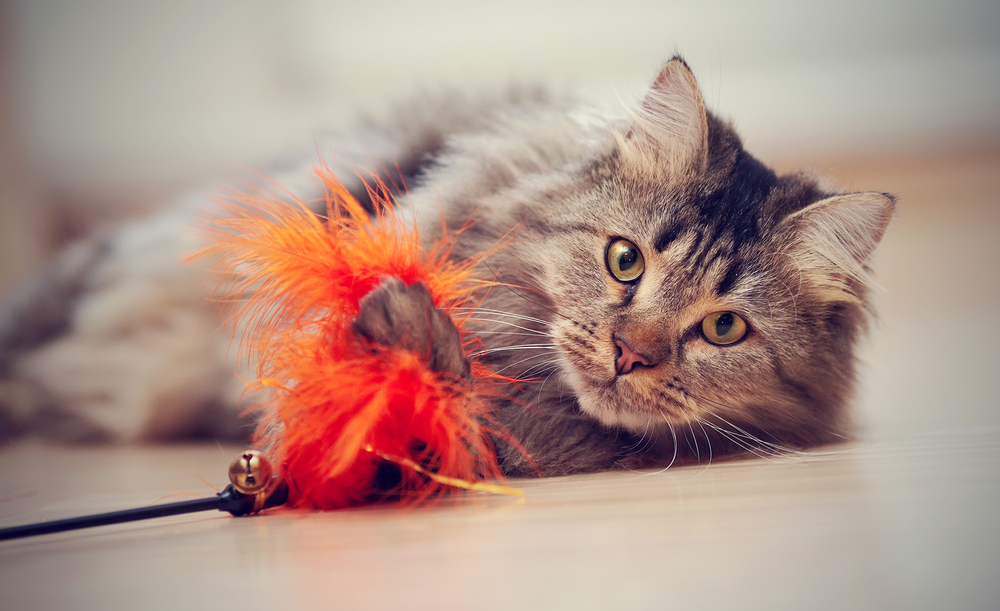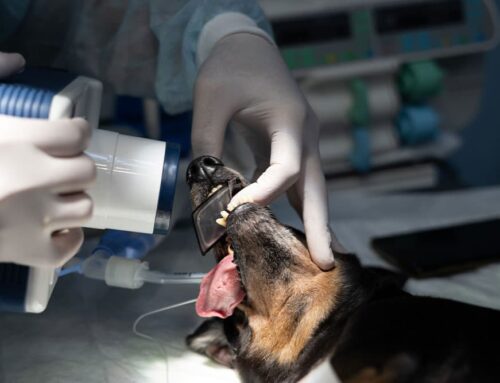Your cat has the sweet life—an overflowing food bowl, a sunny spot on the couch, and all the chin rubs they want. So, when your feline friend acts out in unusual ways, you may wonder what they have to complain about. Oftentimes, the culprit behind feline behavioral problems is stress, as cats are highly sensitive to changes and disturbances in their lives. Read our South Shores Pet Clinic team’s guide to feline stress, and learn how you can identify and remedy the problem.
Common causes of feline stress
When trying to figure out what could be triggering your cat’s stress, you may have an easier time determining what isn’t. All joking aside, cats can easily become anxious and upset when their environment, schedule, and housemates aren’t to their satisfaction. Some of the most common feline stress causes include:
- Changes in routine — Most people and animals enjoy knowing what to expect. As your cat begins each day, they like knowing when they can expect to be fed, what time everyone will leave the house and return, and when it’s time to snuggle on the sofa. An abrupt schedule change, such as the start of a new school year, can be stressful for your whiskered pal.
- Changes in family structure — While people offer congratulations on your marriage and the blending of families, your cat may refuse to come out from under the bed when faced with the addition of several new people and a dog.
- Changes in environment — A home remodel can be stressful for everyone in your family, but a mere furniture rearrangement can trigger your cat’s anxiety.
- Car rides — Few cats enjoy car rides, and fewer still enjoy where a car ride leads. If your cat has been to the groomer, a boarding facility, or to our South Shores Pet Clinic recently, they have likely experienced some level of stress.
- Poor litter box hygiene — One of the most stressful parts about being a cat is having to use unsatisfactory bathroom facilities. Whether the litter box is dirty, filled with the wrong litter, placed in a noisy location, or blocked by a bully, your feline friend likely finds it tough to pee peacefully.
- Boredom — While a house cat’s life seems easy, your whiskered pal may not see it that way. Cats need plenty of interactions and activities to fill their humdrum days. To prevent boredom, provide your feline friend with environmental enrichment.
- Territorial conflicts — Whether stray or feral cats wander outside your home, or your many household cats aren’t best pals, territorial conflicts can erupt. Fights over resources are exceptionally stressful for cats.
- Medical conditions — Pain, nausea, and numerous other health problems create feline anxiety. Your cat doesn’t understand why they feel crummy, and medications often exacerbate their stress.
- Visitors — Cats generally aren’t party animals, and they often leave the uninhibited socializing to their canine counterparts. If you hosted a large gathering right before your cat began urinating inappropriately, the noisy chatter and unfamiliar scents may have triggered your feline friend’s anxiety.
Stress signs in cats
Your cat’s stress signs can be so subtle that you don’t recognize them as such. However, some feline anxiety signs can be exceptionally dramatic and out of character. If your cat feels stressed, their signs may include:
- Inappropriate elimination
- Urine spraying or marking
- Urinary issues
- Overgrooming
- Appetite changes
- Inedible item ingestion
- Diarrhea
- Vomiting
- Sleeping more than usual
- Weight changes
- Aggressive behavior
- Increased hiding behavior
- On-edge behavior (i.e., jumpy, dilated eye pupils, hunched position, fur standing on end)
- Excessive vocalization
Stress can also affect your cat’s physical health, exacerbating a chronic medical condition’s signs. For example, if your cat has been infected with feline herpesvirus, they can experience a viral flare-up, sneezing, becoming congested, and developing ocular and nasal discharge.
How to reduce your cat’s stress

You can help your cat cope with their anxiety. Follow these stress-busting strategies:
- Provide regular wellness care — Protecting your cat from infectious diseases and parasites through regular preventive care is key to avoiding stress. Battling acute or chronic illnesses takes a substantial toll on your feline friend’s mental and physical wellbeing, so help prevent them from developing disease by ensuring they receive regular wellness care.
- Engage in interactive play — Use interactive toys to encourage your whiskered pal to play. Doing so is a wonderful way to alleviate their stress. Fishing pole toys, feather wands, and robotic mice are excellent options for enticing your cat to exercise and focus on something that takes their mind off their anxiety.
- Provide natural behavior outlets — Inside your cat’s fluffy body lurks a fierce predator who needs to claw, climb, and pounce to satisfy instinctive behaviors. Ensure you offer plenty of opportunities to fulfill these needs through scratch pads, climbing towers, and prey toys.
- Establish a routine — Although your daily routine may change, strive to be as predictable as possible on the timing of your cat’s daily care. For example, feed and play with your whiskered pal around the same time each day.
Although stress seems ubiquitous in today’s world, follow our tips for keeping your cat’s life drama-free. If, however, your feline friend appears to be anxious, stressed, or upset, and has been acting out, schedule a behavioral consultation with our South Shores Pet Clinic team.







Leave A Comment